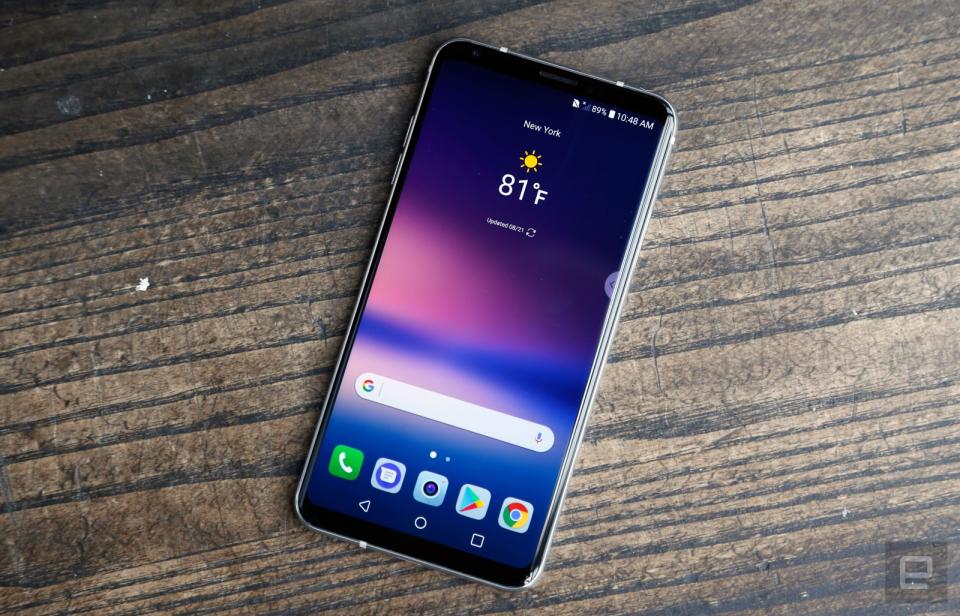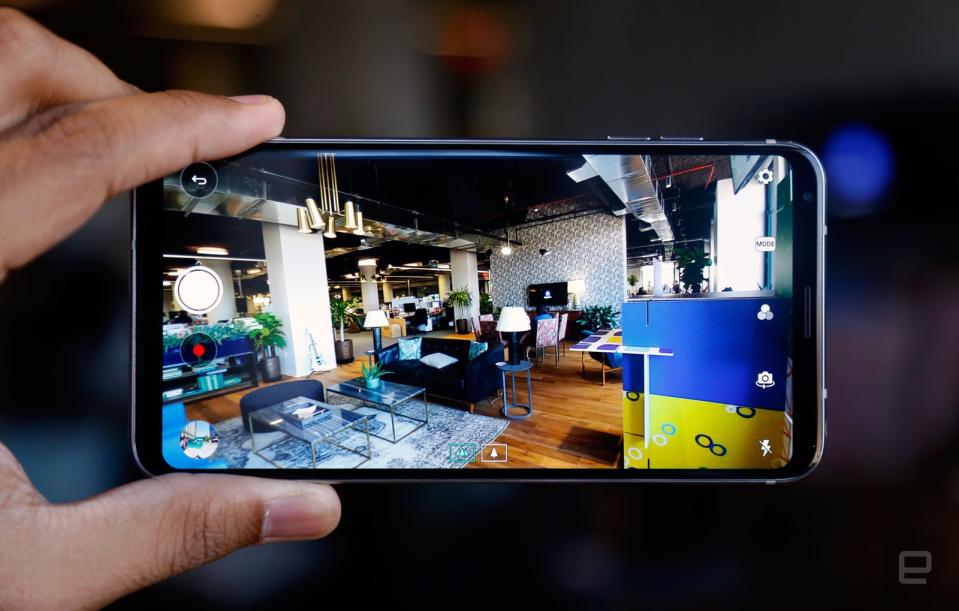LG V30 review: LG’s latest flagship needs more polish
It's mostly great, but the V30's screen could use some work.
The LG V30 caught me by surprise. The G6 was a strong contender when it was released earlier this year, but we've seen so many flashy flagships hit store shelves since then that I almost forgot LG was preparing another phone for the fall. And when the V30 finally showed up, I couldn't quite believe it. This? This is an LG phone? Well, yes, it is. And by excising gimmicks and rethinking its designs, LG has cooked up one of its most impressive smartphones ever. The level of polish on display is generally excellent too, which, unfortunately, throws the flaws this phone does have into sharp relief. With each new model, LG's V series has grown more conventional. It all started with the über-masculine V10 two years ago. The V30 is much tamer, and you'd never guess they were related. That's actually a good thing. The V30 is supremely sleek by LG standards, with rounded edges and panes of Gorilla Glass 5 that gently curve to meet a gleaming metal frame. It helps that LG ditched the gimmicky second screen that its predecessors used -- it was of dubious value to start, and the phone is more streamlined without it. It's not the most striking smartphone out there -- Samsung devices generally have more of that wow factor -- but LG has dramatically refined its approach to design, and the V30 feels great as a result. It's surprisingly comfortable, too, especially considering it has a 6-inch OLED screen. It wasn't that long ago that phones with screens that large were enough to make your hand hurt, but the V30 is perfectly usable with one hand. It doesn't hurt that the V30's fingerprint sensor is located on the phone's back, since it's very easy to reach with an index finger that's usually resting right next to it. Despite the fact that the V30 is remarkably slim and light, LG didn't skimp on the good stuff either. Unlike some other flagship phones we've tested this year, the V30 still has a headphone jack and a spot for microSD cards as large as 2TB on its SIM tray. Our review unit came with 64GB of internal storage, and that's plenty for most people, but I'm not going to turn my nose up at expandable storage options. The V30's body is also rated IP68 for water and dust resistance, a feature last year's V20 notably lacked. It comes at a cost, though: the phone's 3,300mAh cell is sealed so you can't swap batteries like you could with the V10 and V20. At first I was a little disappointed, but it's not hard to see why LG changed course. Removable batteries make phones bigger, and people are used to plugging in whenever they can. When you crank up the brightness on the V30's 6-inch, quad HD screen, it looks pretty nice: colors are punchy without being lurid, and you can pick out lots of detail on this pixel-dense (538ppi) panel. That's the nicest thing I can say about this screen. See, LG has caught a lot of flak for the panels it put in the Pixel 2 XL, but the situation is worse in the V30. As with the XL, the V30's screen has a noticeable blue cast from odd angles. I didn't mind it much on the Pixel 2 XL, and I don't mind it much here. It's a notable shortcoming for a phone of this caliber, but I wouldn't go as far as to call it a deal-breaker. What's more troublesome is the level of grittiness and uneven lighting that's apparent on the V30's screen. It's less noticeable when the panel's brightness is cranked, but it's quite annoying when it's dark and I'm trying to read in bed. At first I actually thought my screen was dirty, but it soon became clear that that's just how it was made. I ran into this issue with our pre-production V30 test unit too. The egregious banding I saw on the pre-release phone is gone, but I hoped LG had started using better panels. Thankfully, the audio situation is much better. Listening to music through the phone's single, bottom-firing speaker is pleasant enough, but everything changes when you plug in a pair of headphones and fire up the built-in Hi-Fi DAC. Not only does music get substantially louder, but it sounds a little more natural and lively too. And that's with the sound profile set to the flat, "normal" mode. If your tastes are a little more particular, there are four other EQ presets to choose from, as well as a handful of "digital filters" that let you further tweak the sound. That's overkill for most people, but there's no denying that even leaving the DAC's settings alone produces better audio. It's gotten to the point where, even on days when I'm testing other phones, I make sure to keep the V30 in my bag to help drown out the din of the subway. Sorry, Oreo fans -- while the V20 was the first device to ship with Nougat last year, the LG couldn't finagle the same sweetheart deal for the V30. Instead, it runs the most recent version of Nougat (7.1.2, for those keeping count). Still, multi-window mode is handy as ever for running two apps at the same time, and they get more room to breathe, thanks to the V30's 18:9 aspect ratio. Google's Assistant is present as well, and remains (to me, at least) the gold standard for smartphone virtual assistants. There are a few things that you'll need to get used to, though. By default, the V30 doesn't have an app launcher, so all your newly downloaded apps get splayed across your home screen. It's easy enough to revive the traditional launcher, and it's worth the effort if only for the handy app search bar. And remember how earlier V-series phones had the weird second screen above the main display? That's gone. LG stuck those shortcuts and controls into what it calls a "floating bar." It's off by default, and I'm really not surprised. The ability to change tracks or add an event to your calendar is nice, but since there isn't a dedicated screen that's always on to access those shortcuts from, you have to unlock the phone before you can get at them. I appreciate LG trying to maintain some feature parity between its new and older devices, but the floating bar is a poor replacement for a gimmick that was of debatable utility in the first place. The rest of LG's built-in apps are as colorful and useful as always, and some widgets have been slightly redesigned to make use of the bigger screen. They're nothing to write home about, though. What is worth discussing, however, is the bloatware situation. Our review unit was provided by Verizon, and as such, it's filled to the brim with apps nobody asked for. There are seven apps in a home screen folder conveniently labeled "Verizon," two pre-loaded games and four Yahoo apps. (Just a reminder: In addition to owning Engadget, Verizon also owns Yahoo's media properties. Verizon has no editorial control over us, though, so I'm going to keep blasting it for its obnoxious pre-loaded apps.) Most troubling is the addition of AppFlash, a home screen panel that offers quick access to frequently used apps, news stories and a search bar that surfaces local hotspots. It sounds useful enough, and it is, but the Electronic Frontier Foundation is firm in its belief that AppFlash amounts to spyware. Thanks, but no thanks, Verizon -- it's all pretty easy to uninstall or disable. The V30's main draw is its dual camera, and with good reason: It's one of the best LG has ever made. The star of the show is a 16-megapixel main shooter with a f/1.6 aperture, and it's complemented nicely by a 13-megapixel wide-angle camera. Other smartphone makers have invested in other kinds of dual-camera setups (most notably Huawei and its secondary monochrome sensors), but I've always preferred the telephoto/wide-angle combo, since it offers more flexibility. Images captured with the main camera feature lots of detail and bright, natural colors when there was lots of light around. Consider me impressed. Low-light performance wasn't amazing on the pre-production V30 we tested, though, and it hasn't gotten much better here. The main camera has optical image stabilization and a very wide aperture -- that's normally a winning combination, but it's not perfect here. Sometimes I'd get a great shot without thinking about it. Most of the time, though, the V30 struggled to pick up fine details in dim lighting that the Galaxy Note 8 and iPhone 8 Plus gathered with no problem. Sadly, that's not the kind of thing LG's myriad photo modes and filters can fix. Meanwhile, the wide-angle camera routinely churned out pleasant-looking landscapes, and being able to capture more of the space around you without moving is definitely helpful. It struggled to pick up detail in some situations, but that's not a surprise, since it shoots at a lower resolution. Even so, it's a big improvement over the V20's wide-angle camera, which produced a ton of distortion around the edges of photos. It also churns out passable wide shots in dim lighting, especially if you're willing to fiddle with settings, but your best bet is to stick to the main camera. Devices like the Note 8 and Google's new Pixel 2 series are better all-around still cameras, but respectable image quality and nuanced controls mean the V30's camera is a serious contender. More than anything, though, LG built the V30 to shoot video, and it shows. The V30 offers a truly remarkable level of control over the footage you capture -- perfect for YouTubers and would-be videographers. We did a separate deep dive into the V30's cinematographic chops here, so I won't rehash everything we learned. Long story short, the V30 can do more than stand in for a proper video camera in a pinch -- it could feasibly replace one for some people. Ultimately, it's all about the control, and there is a lot of that available here. Of course, you don't need to be a Kubrick wannabe to get great video results. A handful of features help imbue footage with an almost professional flair, like color presets that can drastically change the feel and atmosphere of your shots. Personally, I've fallen in love with LG's slick point-zoom feature. Tapping on the screen locks a focal point, and you can zoom in and out of it, even if that point is off in the corner of the frame. It's these little additions that no one else has thought of that make the V30 such a pleasure to use. Here's hoping LG makes still-image quality as much of a priority as video next time. Like a lot of other flagships this year, the V30 runs on Qualcomm's Snapdragon 835 chipset, along with the Adreno 540 GPU and 4GB of RAM. It's a well-worn combination, to be sure, but it's definitely an effective one. The V30 has been a speedy, smooth companion -- lag was virtually nonexistent as I bounced between apps. And it didn't break a sweat when I fired up intense games like Afterpulse and Tempest. When it comes to day-to-day use, the V30 is pretty average. On a typical day, I'd pull the V30 off the charger at around 8 AM, take it to work, run it through my usual routine, and get a low-battery warning at around 9 PM. That's not bad -- I got similar results out of the Galaxy Note 8, and I've occasionally found the V30 still clinging to life after nights when I had forgotten to charge it. Thankfully, the phone is pretty quick to charge: When it's completely dead, a 15-minute top-up was enough to get the V30's up to between 25 and 30 percent. Another 15 minutes on top of that usually pushed the phone close to 55 percent. A bigger battery would've been nice, but you won't have trouble getting through the day if you make at least one pit stop at a wall outlet. The V30 is the most appealing phone LG has made in a long time, but the smartphone competition this year is incredibly fierce. Samsung's Galaxy S8 Plus runs with the same chipset but pairs it with an almost flawless Infinity Display -- the V30's OLED screen simply doesn't stack up. Samsung arguably also wins on design, and the S8 Plus packs a first-rate 12-megapixel camera. Then there's Google's Pixel 2 XL, a device that's very closely related to the V30. The Pixel display is similar to the V30's, but thankfully, it doesn't have the same grainy look as the LG. Plus a cleaner version of Android means the Pixel just feels a little bit faster. There are strong reasons to pick either of these phones over the V30, but here's what it boils down to: If you're serious about audio and video quality, the V30 wins.
Hardware
Display and sound
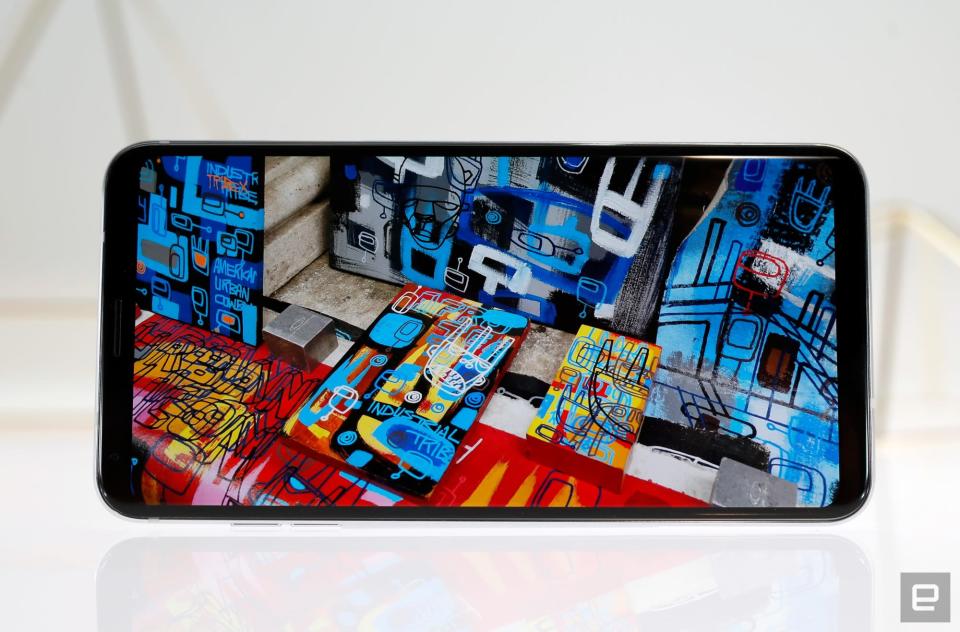
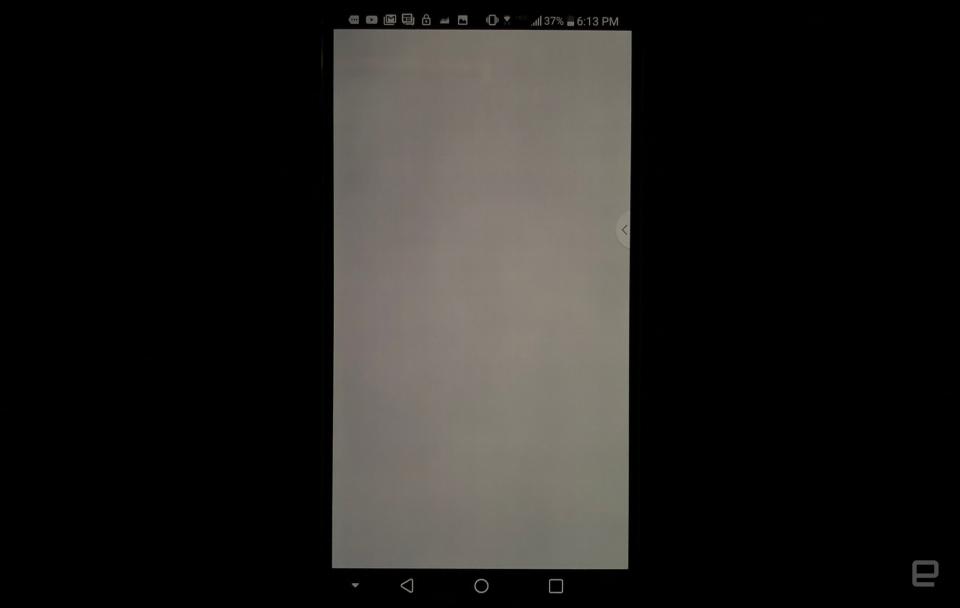
Software
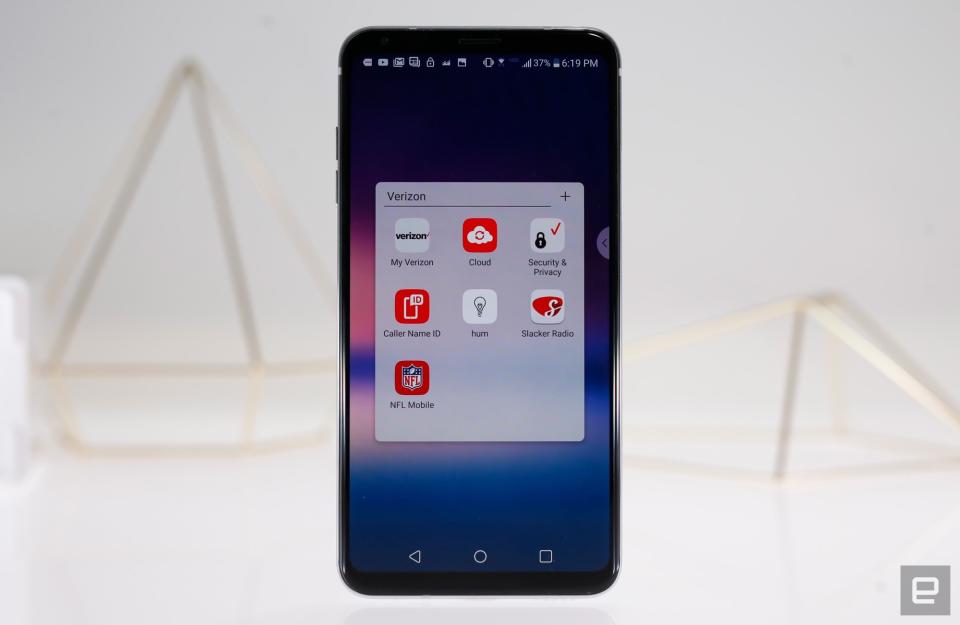
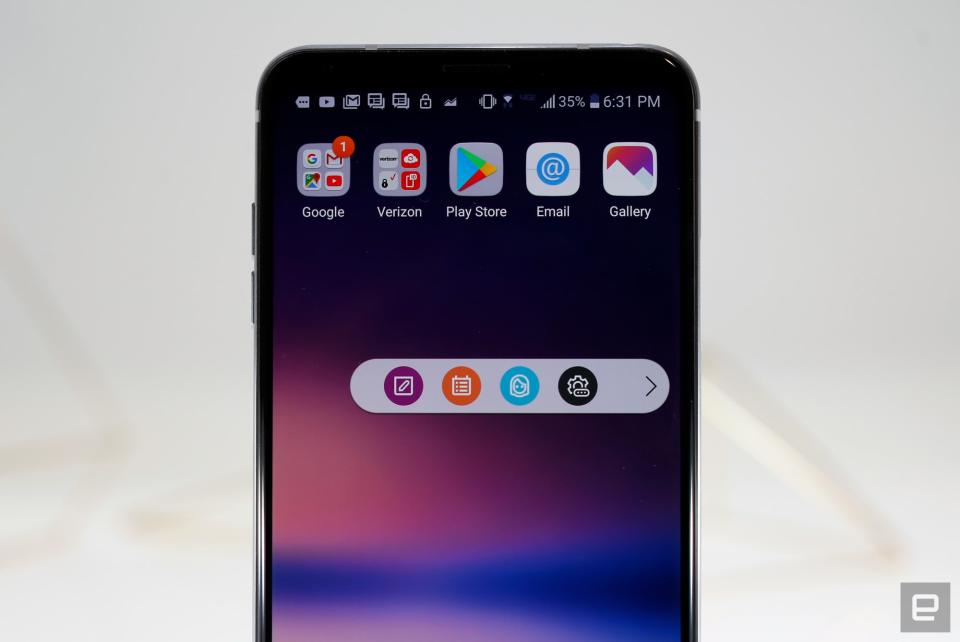
Camera
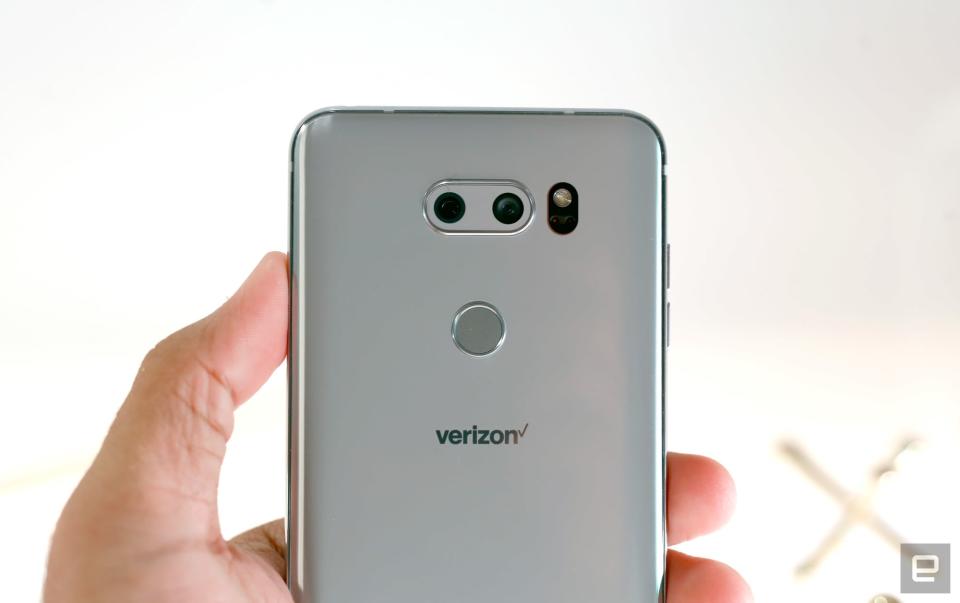
Performance and battery
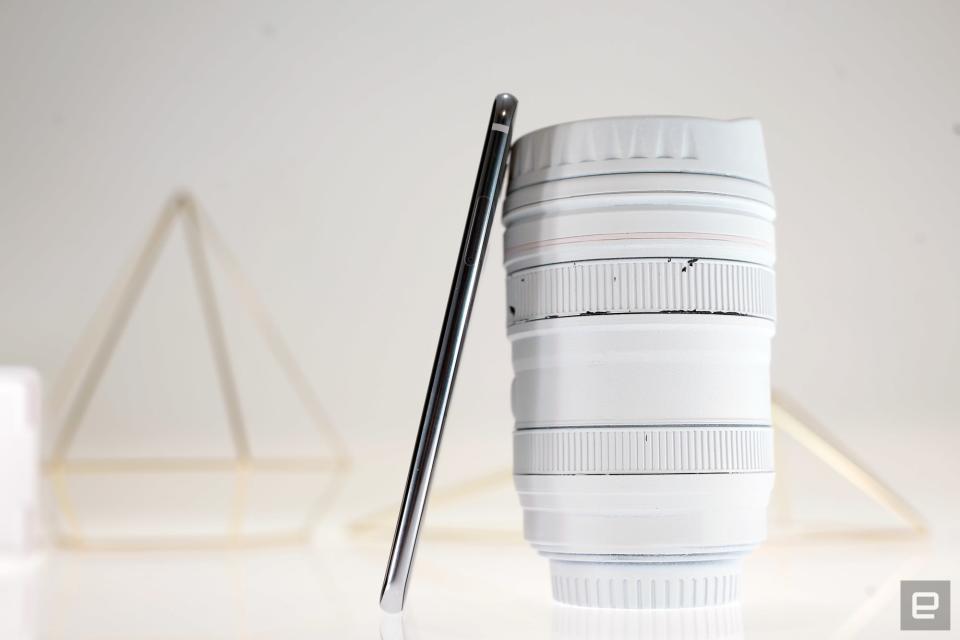
LG V30 | Google Pixel 2 XL | LG G6 | Galaxy Note 8 | |
|---|---|---|---|---|
AnTuTu (total) | 145,783 | 159,382 | 141,065 | 166,673 |
3DMark IS Unlimited | 28,193 | 39,235 | 30,346 | 38,960 |
GFXBench 3.0 1080p Manhattan Offscreen (fps) | 49 | 52 | 42 | 55 |
CF-Bench | 61,958 | N/A | 24,748 | 67,415 |
The competition
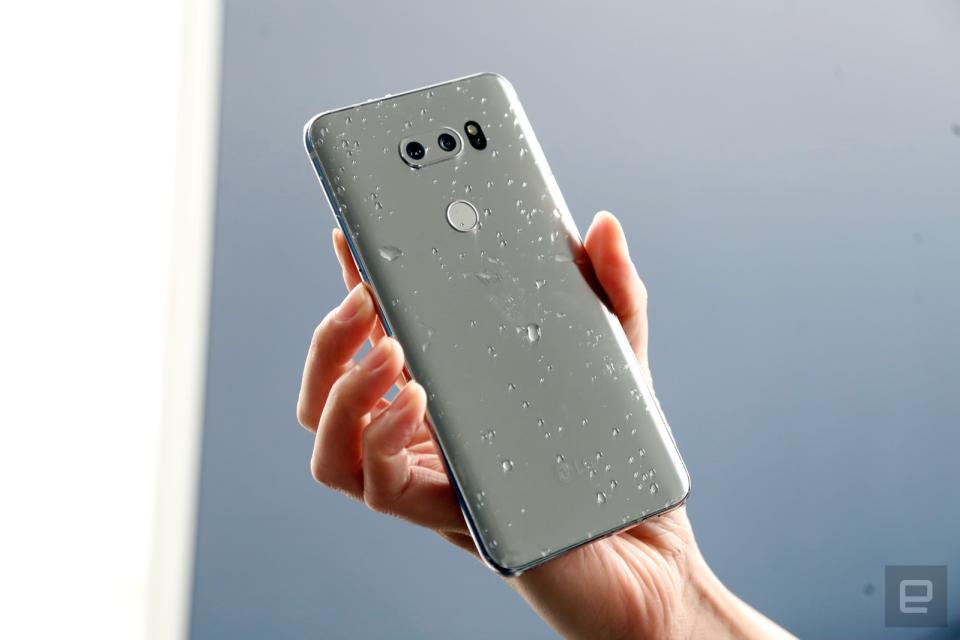
Wrap-up
